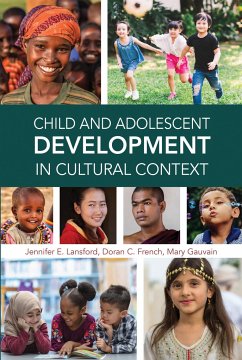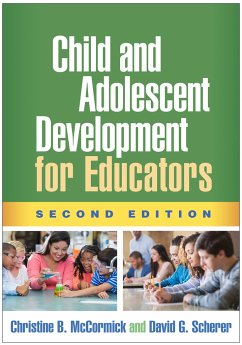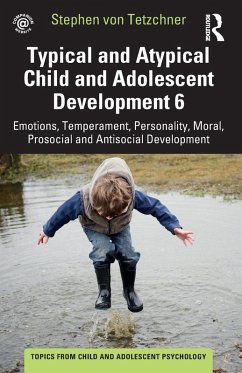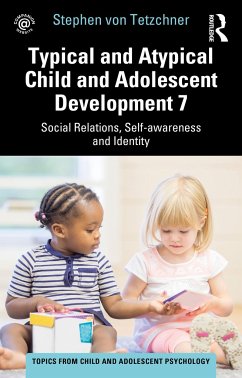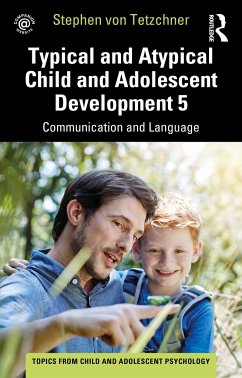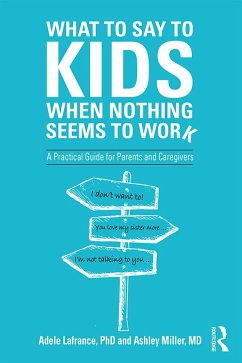
Child and Adolescent Development in Context - International Student Edition
Versandkostenfrei!
Nicht lieferbar
Like children themselves, development is dynamic. In Child and Adolescent Development: Lives in Context, author Tara Kuther grounds beginning students in key theories by framing the research in real-life contexts, including gender, race and ethnicity, socioeconomic status, and more. Using highly relatable examples, vivid cross-cultural stories, and video case studies of real individuals, Kuther consistently asks: What do you think? What would you do? Students will walk away with an understanding of the book¿s three core themes - the centrality of context, the importance of research, and the a...
Like children themselves, development is dynamic. In Child and Adolescent Development: Lives in Context, author Tara Kuther grounds beginning students in key theories by framing the research in real-life contexts, including gender, race and ethnicity, socioeconomic status, and more. Using highly relatable examples, vivid cross-cultural stories, and video case studies of real individuals, Kuther consistently asks: What do you think? What would you do? Students will walk away with an understanding of the book¿s three core themes - the centrality of context, the importance of research, and the applied value of developmental science - and understand it in a way that they can immediately apply to their own lives and careers. Child and Adolescent Development: Lives in Context, First Edition is a chronologically oriented textbook for the Child and Adolescence Development and covers infancy through adolescence.




